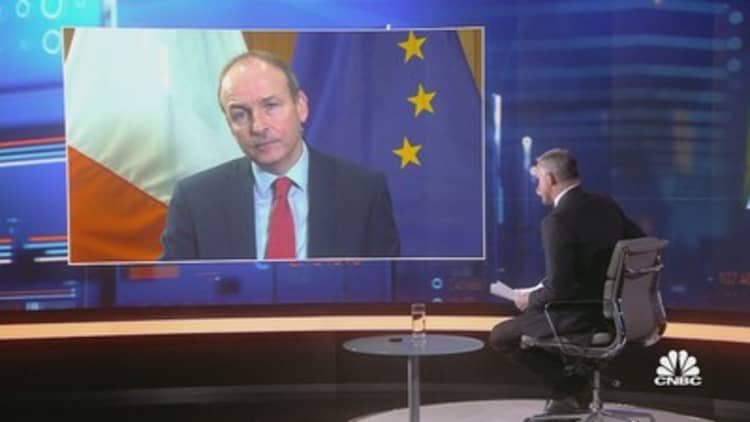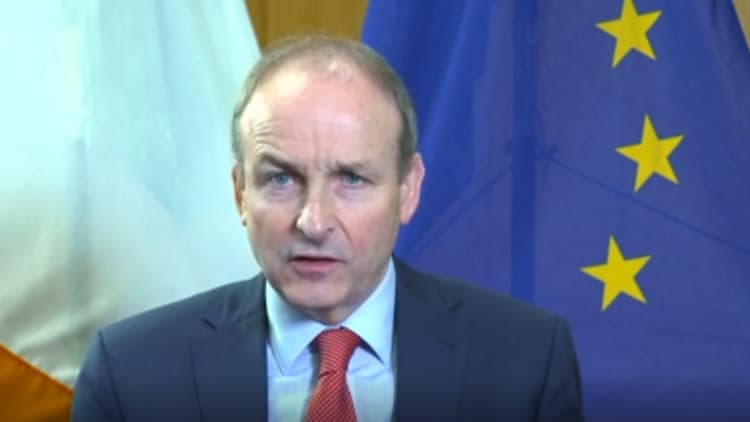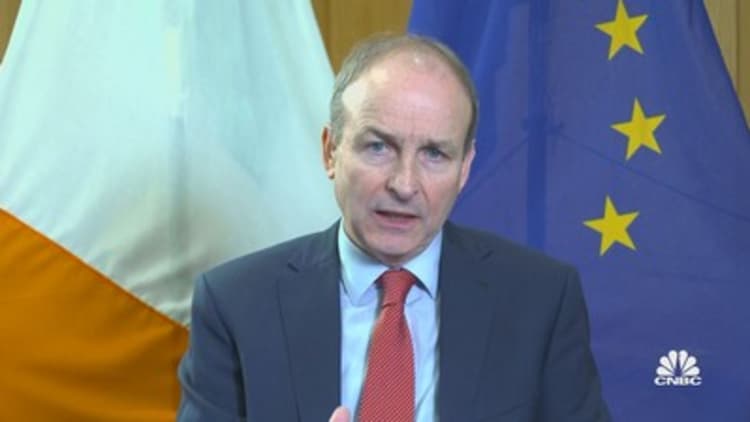
LONDON — The ongoing dispute between the European Union and AstraZeneca over the supply of Covid-19 vaccines is not another "Brexit battle," the Irish prime minister told CNBC on Friday.
Speaking exclusively to CNBC's Steve Sedgwick, Micheal Martin said, "it was always inevitable that there would be bumps along the way," in reference to the rollout of vaccines in the fight against the coronavirus.
The European Union has been under pressure for what critics describe as a slow rollout of Covid vaccines. The European Commission, the institution leading the purchase agreements, has been blamed for not securing enough vaccines, and the region's medical agency has been criticized for taking too long to approve jabs that have received the green light elsewhere.
The latest stumbling block emerged after AstraZeneca, the Swedish and British pharmaceutical company, said it would distribute only a fraction of the jabs to the EU agreed upon for the first quarter. The region's medicines agency is only due to approve the AstraZeneca vaccine on Friday, but officials demanded more clarity from the company on reasons for the delay.
AstraZeneca has said that part of the problem is production issues at its European plants. This led some European officials to suggest that the company divert some supplies from the U.K. to Europe.
"I don't believe this is another front in the Brexit battle at all," the Irish leader said. The U.K. left the European Union in 2020.
AstraZeneca's CEO Pascal Soriot said in an interview that the company was working 24/7 to solve the production problems, while adding that the EU had ordered the vaccines three months after the U.K., which meant the EU was behind in getting the jabs.

However, Ireland's prime minister said he believed the European Commission had done a good job in ensuring that the bloc's 27 countries got coronavirus vaccines.
"All in all, I think the European Commission has behaved well and effectively in relation to vaccine procurement. There are a lot of tensions out there … a lot of pressure on the Commission from member states, from prime ministers. Why? Because populations are under pressure, people are under pressure," he said.
The EU has been hit hard by the pandemic with Italy, Spain, Germany and France — the four largest euro economies — among the countries with the highest number of infections since the pandemic started.
'A degree of normality in the summer'
Ireland has recorded more than 193,000 Covid-19 infections and more than 3,000 related deaths since the pandemic first hit. The country entered a third national lockdown earlier this month, which could last until at least early March, and registered the worst infection rate in the world earlier this month.
However, the prime minister said he was confident there will be a "degree of normality in the summer."
"I was under no illusion that the first quarter would have low volumes of vaccine coming in," Martin said. "So Q2 (the second quarter) was always going to be the key quarter, when we would move into higher volumes of vaccines coming into the country, which would enable us to ramp up the vaccination program."
As the vaccination program evolves, Martin said that it will give "societies room for maneuver and choices to make" about how and when to reopen the economies.



